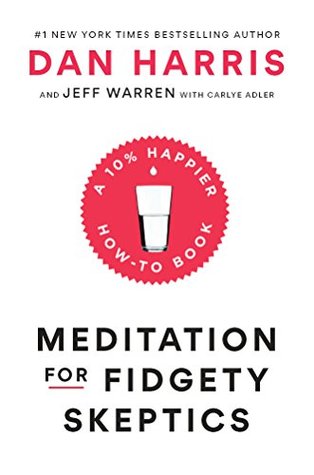More on this book
Community
Kindle Notes & Highlights
by
Dan Harris
Read between
February 10 - February 20, 2020
“Buddhism is not something to believe in, but rather something to do.”)
Getting lost and starting over is not failing at meditation, it is succeeding.
You really can’t hear this enough: Meditation does not require you to stop thinking. If you go into meditation with the expectation that you will suspend all thought, you are going to have a rough go of it.
“It doesn’t change your circumstances,” said Paula, “it just changes your reaction to those circumstances?”
“Thinking is a wonderful servant but a terrible master.”
“Everyone should meditate once a day. And if you don’t have time to meditate, then you should do it twice a day.”
So if you’re really agitated, try taking some deliberate long slow exhales, and as you do, imagine your energy settling and draining into the ground.
And sometimes a hindrance can mask a deeper issue: desire can mask loneliness, agitation can cover fear, sleepiness can be a form of avoidance.
Another thing that’s helped me deal with urges—especially the urge to share some half-baked opinion—is something I learned from the Zen teacher Bernie Glassman. When you go into any situation, he said, “think: don’t know.” As in, don’t pretend you know what’s up or what’s really going on. Chill for a bit in the situation, watching, learning. There’s a humility here that is really helpful. It’s kind of a natural “stop” that you can learn to bring with you into all of your life.
it really is much easier to apply mindfulness in moments of acute stress if you have a foundation of formal practice.
if the only tool you have is a hammer, you treat everything as if it were a nail.
no one else is there to see what you’re doing in the privacy of your own mind during meditation, so why bother getting self-conscious?
Watching his beaming face on my computer, I thought about the Buddhist term mudita, which means “sympathetic joy.” I describe it as the opposite of schadenfreude.


